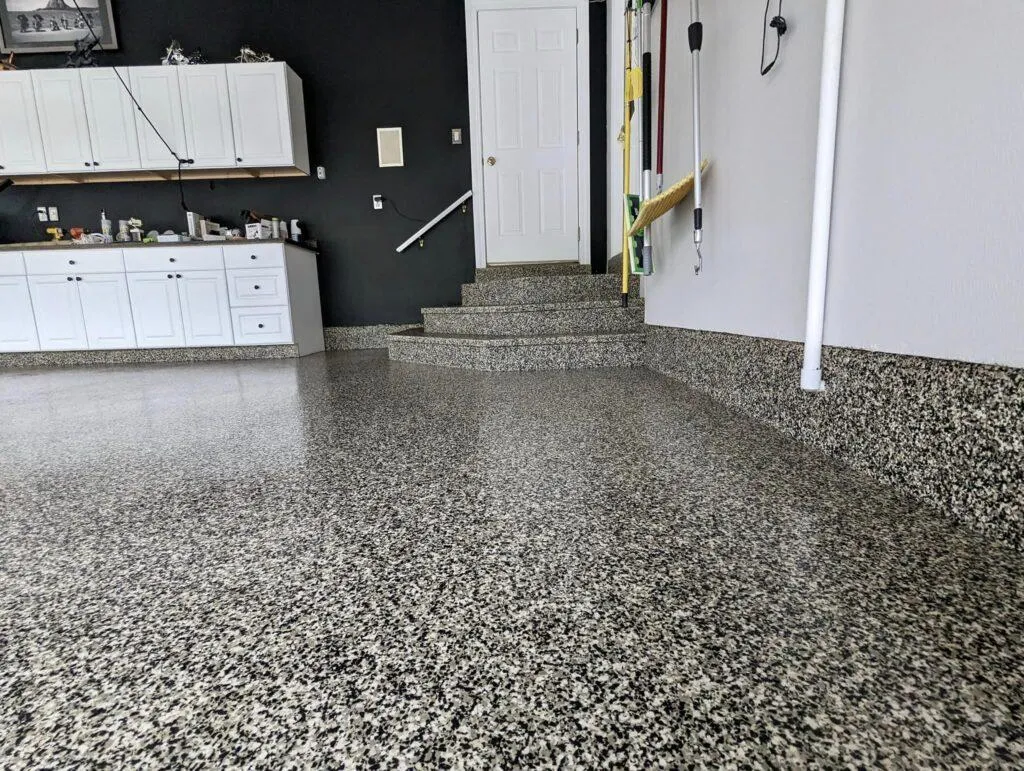
Mastering Epoxy Surface Preparation in Lake City, FL and Surrounding Areas
Proper surface preparation is the most critical step in achieving a durable, long-lasting epoxy floor. In Lake City, FL and surrounding areas, ensuring your concrete is clean, dry, and correctly profiled sets the stage for a coating that adheres strongly, looks flawless, and withstands years of heavy use. Whether for residential garages, commercial warehouses, or industrial facilities, professional epoxy preparation protects your investment, prevents common flooring problems, and delivers a high-performance finish that enhances both functionality and appearance.
Why Is Perfect Epoxy Surface Preparation a Game-Changer for Durable Floors?
Proper surface preparation is essential for creating a strong bond between the epoxy and your concrete. It removes debris, creates a mechanical grip, and smooths out imperfections. Skipping this step can lead to peeling, bubbling, delamination, and a floor that looks poor and performs inadequately. In Florida’s humid climate, ensuring the concrete is clean, dry, and correctly profiled is vital to protect your investment and extend the life of your epoxy floor.
What Happens If You Skip Concrete Prep Before Applying Epoxy?
Failing to prepare your concrete surface properly can result in a variety of issues. Peeling occurs when the epoxy has no mechanical grip, while bubbling forms when moisture becomes trapped under the coating. Delamination is often caused by residual oils, grease, or old sealers, and uneven finishes can result from inconsistent surface texture. Additionally, leftover coatings or sealers can create discoloration. Homes and businesses across Lake City, Jacksonville, Gainesville, and surrounding areas that skip proper prep often face expensive repairs and a significantly shorter lifespan for their epoxy floors.
How Does Surface Preparation Boost Epoxy Adhesion and Longevity?
Surface preparation improves adhesion by creating a mechanical grip that allows the epoxy to anchor effectively, removing contaminants such as dirt, oil, or leftover coatings that block bonding, and managing moisture by ensuring the concrete is dry and pH-balanced. When these steps are performed correctly, epoxy adhesion can increase by up to forty percent, resulting in floors that last for decades, even under heavy traffic or exposure to chemicals.
How Can You Prevent Common Problems with Proper Prep?
Many common epoxy flooring failures can be prevented with proper surface preparation. Peeling, bubbling, and delamination are often caused by insufficient mechanical grip, trapped moisture, or surface contaminants, while uneven finishes and discoloration frequently result from inconsistent texture or residual coatings. By thoroughly cleaning, degreasing, and profiling the concrete surface, and by repairing any cracks or spalls, these issues are largely avoided, ensuring a smooth and durable epoxy finish for homes and commercial spaces in Orange Park, St. Augustine, and Middleburg.
How Do You Assess Concrete Substrate for Epoxy Coating?
Assessing the concrete involves examining its composition, surface condition, porosity, and the presence of laitance, which is a weak, chalky layer that can prevent proper adhesion. It is also crucial to test the concrete for moisture and pH levels. Industry standards recommend using the calcium chloride test for surface moisture, in-situ relative humidity probes for internal moisture, and pH strips to measure surface alkalinity. Ensuring proper substrate assessment in areas such as Jacksonville, Gainesville, and Green Cove Springs allows you to determine the appropriate preparation method and avoid adhesion failures.
How Should You Clean and Degrease Concrete for Optimal Epoxy Bonding?
Concete must be thoroughly cleaned to remove oils, dirt, and other contaminants that could interfere with epoxy adhesion. This includes sweeping and vacuuming loose debris, applying an alkaline degreaser for oils and grease, using mild detergents for general dirt, and solvent cleaners for stubborn coatings. After scrubbing, the surface should be rinsed thoroughly and any remaining water removed with a wet vacuum. Proper cleaning is critical to creating a strong mechanical and chemical bond, especially in the humid conditions found across St. Augustine, Middleburg, and Green Cove Springs.
How Do You Achieve the Correct Concrete Surface Profile (CSP) for Epoxy?
The correct concrete surface profile allows epoxy to form a mechanical anchor. For thin overlays, a light CSP of one to two is sufficient, while standard epoxy coatings usually require a CSP of two to four, which can be achieved through diamond grinding. For heavy-duty, industrial floors, a CSP of five to seven is often necessary, and this is typically achieved with shot blasting. Other methods, such as acid etching, scarifying, or scabbling, are used for smaller areas or heavily damaged concrete. Achieving the proper CSP ensures long-lasting adhesion and a flawless epoxy finish for commercial and industrial floors in Valdosta, Orange Park, and other surrounding areas.
How Should You Repair Concrete Substrate Before Epoxy Application?
Concrete repair is essential to create a uniform, solid surface. Cracks should be widened into a “V” shape and filled with epoxy crack filler, spalls can be patched with polymer-modified mortar, and surface pitting can be corrected using cementitious toppings. Self-leveling compounds can be applied to correct minor height differences, ensuring a smooth, even surface for consistent epoxy coverage. Proper repair prevents weak points and guarantees an aesthetically pleasing and durable floor across Lake City, Gainesville, and nearby areas.
What Role Do Primers Play in Epoxy Surface Preparation?
Primers seal the pores of concrete, improve epoxy penetration, block moisture vapor, and provide a uniform base for the topcoat. Epoxy-based primers are ideal for clean, low-moisture concrete, moisture-tolerant primers are best for slabs on grade or high-humidity areas, and urethane primers are UV-stable, making them suitable for outdoor or decorative floors. Using the right primer maximizes the performance and lifespan of your epoxy system, ensuring a flawless finish in locations such as Jacksonville, St. Augustine, and Middleburg.
Why Hire Professionals Across Lake City, Jacksonville, Gainesville, and Surrounding Areas?
Professional epoxy contractors bring expertise, specialized equipment, and adherence to industry standards to every project. Experts in Orange Park, St. Augustine, Middleburg, Alachua, and Green Cove Springs use proven mechanical and chemical preparation techniques, follow ICRI and ASTM guidelines, and implement strict quality control measures. This ensures that epoxy floors look flawless, resist peeling, bubbling, or delamination, and remain durable under heavy traffic, chemicals, and environmental stress. Working with professionals protects your investment and guarantees a perfect, long-lasting floor.
Final Thought
Investing time and effort into proper epoxy surface preparation is the key to achieving a floor that is not only visually stunning but also long-lasting and resilient. In Lake City, FL and surrounding areas, following professional prep methods ensures that your concrete can withstand heavy traffic, chemicals, and Florida’s humid climate without peeling, bubbling, or discoloration. Whether for residential garages, commercial warehouses, or industrial facilities, working with experienced contractors guarantees a flawless, durable finish that protects your investment and enhances the overall value and appearance of your property. Proper preparation today means years of worry-free performance tomorrow.

How long does epoxy surface preparation take in Lake City and surrounding areas?
Small residential floors may take one to two days, while larger commercial or industrial areas can take several days depending on surface condition.
Can I apply epoxy over old concrete in Orange Park or Middleburg without repairs?
No, cracks, spalls, and surface damage must be repaired first to ensure proper adhesion and long-lasting results.
What is the ideal concrete surface profile (CSP) for epoxy floors in Valdosta, GA?
CSP 2–4 is recommended for standard epoxy coatings, while heavy-duty industrial floors require CSP 3–5 for maximum adhesion.
How do I know if my concrete has too much moisture for epoxy in Green Cove Springs?
Use ASTM F1869 or F2170 moisture tests; levels above recommended thresholds can cause bubbling and delamination.
What types of primers are best for epoxy floors in Lake City and surrounding areas?
Epoxy-based primers for low-moisture concrete, moisture-tolerant primers for high humidity, and urethane primers for UV-exposed floors.
